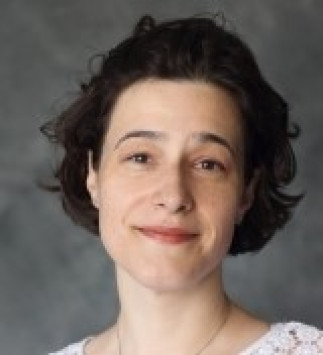Titre : The Wonderful World of Scanning Electrochemical Microscopy (SECM)
Endroit: Campus MIL, salle A-2521.1
Hôte : Prof. Karen Waldron
Abstract:
In its simplest form, SECM is a scanning probe technique in which a small- scale electrode is scanned across an immersed substrate while recording the current response. This response is dependent on both the surface topography and the electrochemical activity of the substrate. Consequently, using an array of operational modes, a wide variety of substrates and experimental systems can be characterized. The strength of SECM lies in its ability to quantify material flux from a surface with a high spatial and temporal resolution. It has been used in a variety of applications fields.
We will first describe the fundamentals of SECM, including the required instrumentation and the principles of the most frequently used operational modes. Following this basic understanding of SECM principles, we then move towards a comprehensive summary of the critical parameters for any SECM experiment. More specifically, we will discuss in detail redox mediators, probes, and solvent systems that are used in SECM experiments. Finally, we will discuss recent applications of SECM with an emphasis on our work in the last five years related to material characterisation, corrosion and batteries.
Biosketch
Born in Buckingham, Quebec, Janine Mauzeroll completed a B.Sc.(‘99) in Chemistry at McGill University, followed by a Ph.D. (‘04) in Electrochemistry at the premier laboratory of Allen J. Bard at the University of Texas Austin. Following this, Mauzeroll undertook a PDF position at l’Université de Paris 7 in the theoretical electrochemistry group of Jean-Micheal Savéant.
Mauzeroll (NSERC-UFA award, Fred Beamish Award CSC) is a Full Professor of Chemistry and an Associate Member of the Mining and Materials Engineering Department at McGill. JM is an electrochemist. She develops new in-situ instruments, experimental and numerical methodologies for characterizing a broad range of materials, employing classical electrochemistry and scanning probe microscopy. Her work consistantly combines experimental and theoretical electrochemical methods applied to pressing biomedical and industrial problems such as multidrug resistance in human cancer cells and corrosion in magnesium containing automobiles.
She is the Technical Editor of the Organic and Bioelectrochemistry Section of the Journal of Electrochemical Society. She was also the Chair of the 2020 Gordon Electrochemistry conference. She has managed and participated in several large industrial NSERC Strategic, CRD and APC grants. She has published over 50 papers (among them The Journal of the American Chemical Society, The Proceedings of the National Academy of Science (2013, 2004), Analytical Chemistry, Chemical Reviews, 3 patents (PCT stage) and 4 book chapters. She has given 50 invited talks. Since 2010, JM has trained more than 50 students and postdoctoral fellow in chemistry, biochemistry, nanotechnology, numerical simulations and engineering.

